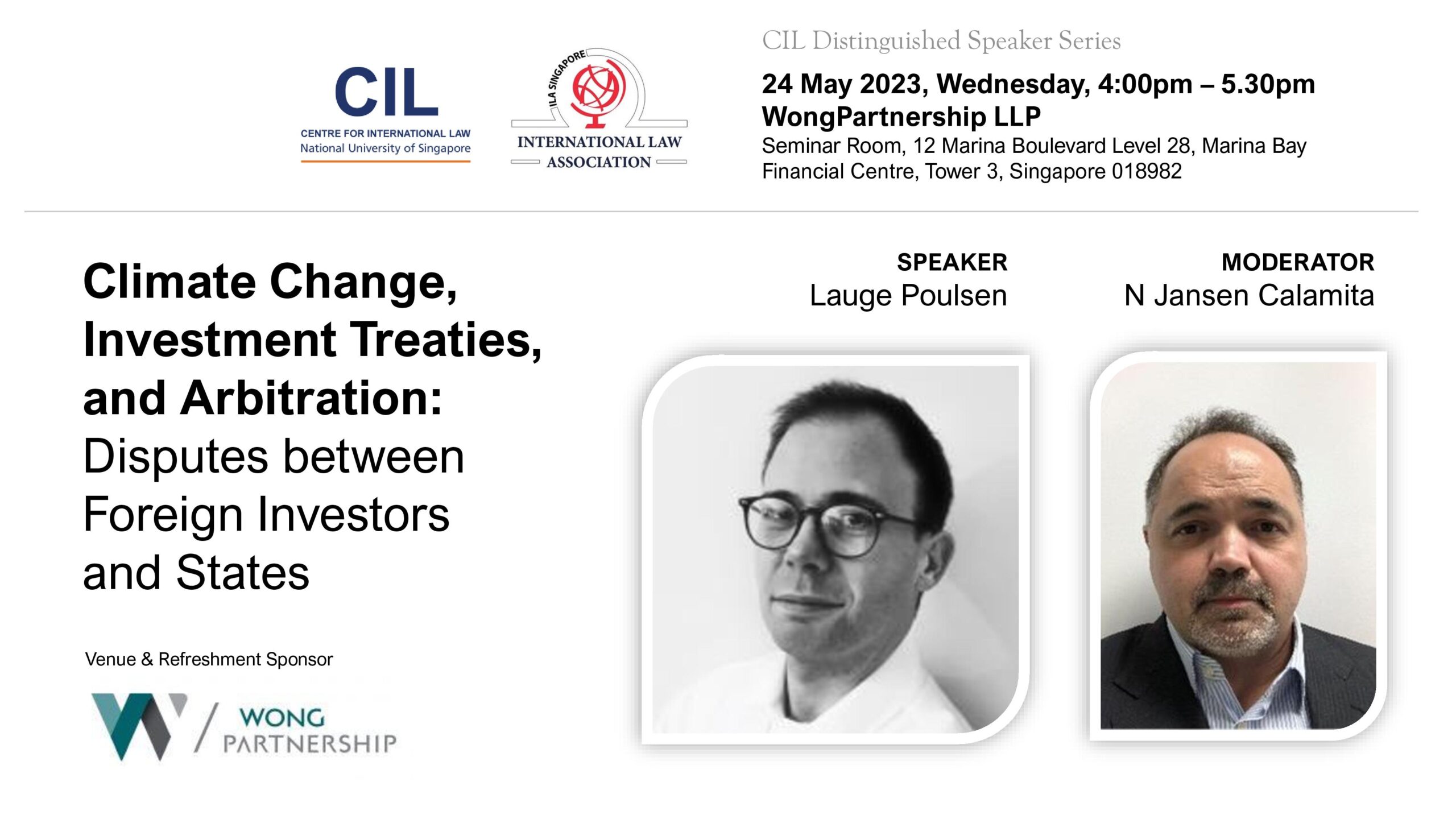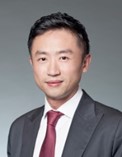Venue
Start
End
Time

Background
In Article 2(1) of the Paris Agreement, 197 states and the EU agreed that they would undertake to “mak[e] finance flows consistent with a pathway towards low greenhouse gas emissions and climate-resilient development”. Foreign investment stands as one of the key financial flows for addressing climate change. According to UNFCC, global additional investment and financial flows of USD 200-210 billion will be needed in 2030 to return global greenhouse gas emissions to current levels. As a result, the proper alignment of the international legal framework for investment – whether in terms of investment protection, investment facilitation, or standards and guidelines applicable to non-state actors – is of critical importance to addressing the existential threat posed by climate change.
What This Talk is About
This talk addresses the implications of investment treaty arbitration on states’ adoption of climate change mitigation measures. As foreign investors have begun to use investment treaty arbitration to target climate change policies, concerns are growing that the treaties may increase the cost of the energy transition towards net zero. The first sustained multilateral effort to address this challenge has begun at the OECD. In this lecture, Professor Lauge Poulsen, chair of OECD’s inter-governmental programme on climate and investment treaties, will outline reform proposals under consideration to align investment treaties with the Paris Agreement.
Welcome
 TIONG Teck Wee is the Co-Head of the Sustainability & Responsible Business Practice and a Partner in the Commercial & Corporate Disputes Practice at Wong Partnership. His main areas of practice are in multijurisdictional, complex, high-value commercial and corporate disputes. Teck Wee has represented and acted for global private, public, and state-owned clients from various jurisdictions (such as Singapore, Malaysia, India, Japan, PRC and U.S.) in the Singapore High Court and in international arbitrations under the rules of major arbitral institutions (such as the SIAC and ICC), and in ad hoc arbitrations under the UNCITRAL Rules. Teck Wee has also advised and acted for both private investors and State parties in investment treaty arbitrations. Teck Wee is fluent in Mandarin and is experienced in acting for Mandarin-speaking and Chinese clients, as well as in international arbitration matters where Mandarin is the language of the arbitration. Apart from his practice, Teck Wee is also a part-time tutor with the Faculty of Law at the National University of Singapore and the Singapore Management University.
TIONG Teck Wee is the Co-Head of the Sustainability & Responsible Business Practice and a Partner in the Commercial & Corporate Disputes Practice at Wong Partnership. His main areas of practice are in multijurisdictional, complex, high-value commercial and corporate disputes. Teck Wee has represented and acted for global private, public, and state-owned clients from various jurisdictions (such as Singapore, Malaysia, India, Japan, PRC and U.S.) in the Singapore High Court and in international arbitrations under the rules of major arbitral institutions (such as the SIAC and ICC), and in ad hoc arbitrations under the UNCITRAL Rules. Teck Wee has also advised and acted for both private investors and State parties in investment treaty arbitrations. Teck Wee is fluent in Mandarin and is experienced in acting for Mandarin-speaking and Chinese clients, as well as in international arbitration matters where Mandarin is the language of the arbitration. Apart from his practice, Teck Wee is also a part-time tutor with the Faculty of Law at the National University of Singapore and the Singapore Management University.
About the Speaker
Lauge POULSEN is Professor of International Relations & Law at University College London and Chair of the OECD inter-governmental work programme on investment treaties and climate change policy. Prof Poulsen was adviser to the UK Foreign and Commonwealth Office from 2017 to 2020 and was appointed OBE (Officer of the British Empire) in the 2022 Queen’s New Year Honours List for services to UK trade policy. Prof Poulsen has published widely on the politics of international economic law, including Bounded Rationality and Economic Diplomacy (Oxford University Press 2016) and The Political Economy of the Investment Treaty Regime (with J Bonnitcha and M Waibel) Oxford University Press 2016. He is also an editorial board member of several journals, including the Journal of International Economic Law, World Trade Review, and Journal of International Dispute Settlement.
Moderator
N Jansen CALAMITA is the Head of Investment Law & Policy at the NUS, Centre for International Law and Research Associate Professor in the Faculty of Law. Prof Calamita is the author most recently of Investment Treaties and the Rule of Law Promise (with A Berman) (Cambridge University Press 2023) and ASEAN and the Reform of Investor-State Dispute Settlement (with C Giannakopoulos) (Edward Elgar 2022). He has previously held posts at the University of Oxford and the University of Birmingham. Prior to entering academics, Prof Calamita practiced international commercial and investment arbitration both in private practice and for the US Government. In addition to his academic work, Prof Calamita continues to advise governments and international organizations on matters relating to international investment and dispute avoidance.

